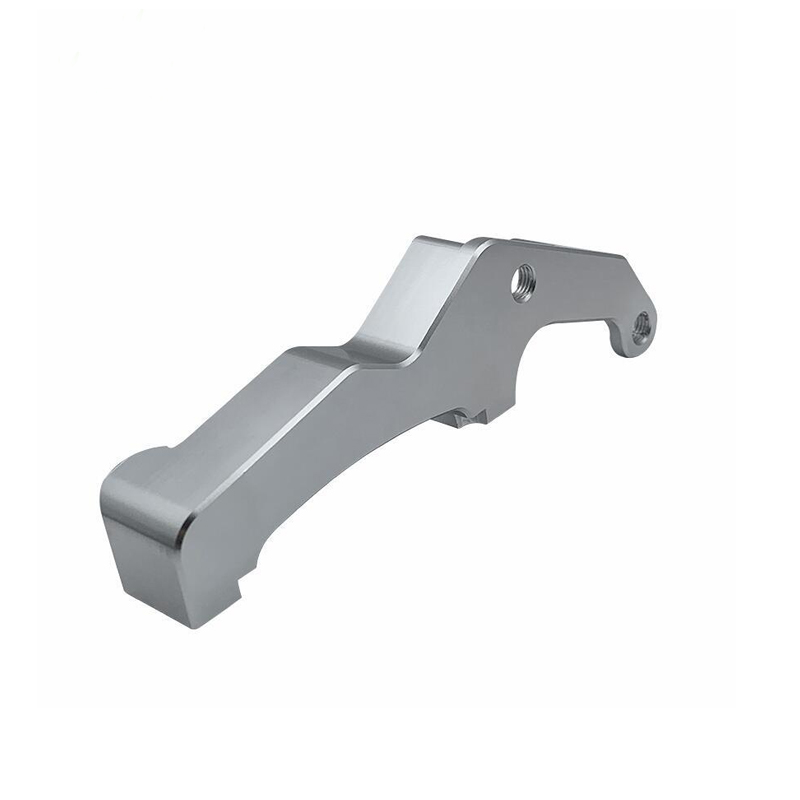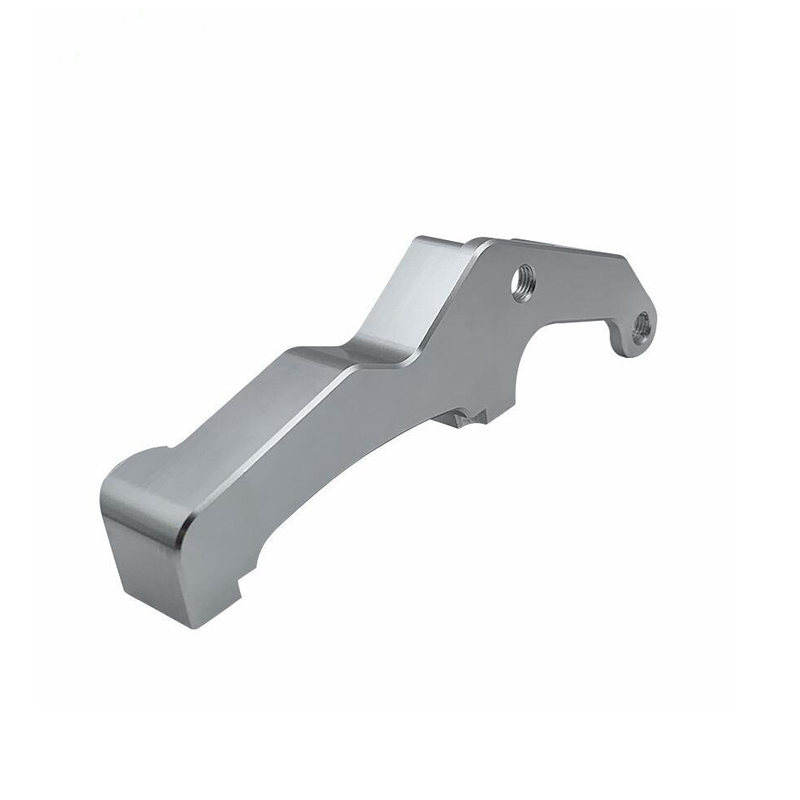
Titanium CNC Parts are precision-engineered components manufactured using CNC (Computer Numerical Control) machining of titanium alloys. Renowned for their exceptional strength-to-weight ratio, corrosion resistance, and biocompatibility, these components are widely used in demanding sectors such as aerospace, medical, marine, and high-performance automotive industries.

Thanks to advanced CNC Machining processes, titanium parts can achieve tight tolerances (±0.005 mm) and intricate geometries. Among available materials, Titanium Grade 5 (Ti-6Al-4V) is the most commonly used, offering superior tensile strength (up to 1,000 MPa), fatigue resistance, and thermal stability.
Titanium CNC machined parts provide outstanding mechanical performance:
Yield Strength: 830–900 MPa (Grade 5)
Elastic Modulus: 110 GPa (lower than steel, beneficial for reducing stress shielding)
Hardness: 36 HRC
Fatigue Strength: 500 MPa at 10⁷ cycles
These characteristics make CNC Titanium Parts suitable for dynamic and load-bearing applications.
Titanium forms a passive oxide layer (TiO₂) which contributes to:
Excellent seawater resistance (corrosion rate: 0.0025 mm/year)
Immunity to pitting corrosion in chloride-rich environments up to 100°C
High acid resistance, except in hydrofluoric and concentrated sulfuric acids
This enables titanium CNC components to maintain integrity in marine, medical, and chemical environments.
Melting Point: 1,668°C
Thermal Conductivity: 6.7 W/m·K
Thermal Expansion Coefficient: 8.6×10⁻⁶/°C
Specific Heat Capacity: 0.526 J/g·°C
Electrical Resistivity: 1.78 µΩ·m
Titanium retains mechanical stability at temperatures up to 400°C, making it ideal for CNC machined titanium parts in high-heat environments.
Titanium presents unique challenges during CNC processing:
Low thermal conductivity causes localized heat (up to 600°C at the tool tip)
High reactivity leads to galling and rapid tool wear
Special coatings and cooling methods are required
Cutting Speeds: 30–60 m/min (roughing), 60–90 m/min (finishing)
Our Titanium CNC Machining Services use advanced tooling, coatings, and programming to manage these issues efficiently.
We offer comprehensive Titanium CNC Fabrication, covering:
CNC Turning & Milling for complex geometries
5-Axis CNC Machining for high-precision titanium components
EDM (Electrical Discharge Machining) for delicate features
Drilling, tapping, threading and finishing processes
Tolerances: up to ±0.005 mm
Prototyping to mass production, supported with full documentation
To enhance performance and appearance, our Titanium CNC Parts can be surface-treated with:
Anodizing (20–100V DC): creates 0.5–5 µm oxide layers for wear and corrosion resistance
Passivation: performed in nitric acid to enhance corrosion resistance
Polishing: for surgical and cosmetic-grade finishes
Bead Blasting: produces matte, non-reflective surfaces
Laser Marking: ideal for part traceability or branding
Dry Film Lubricants (MoS₂): reduce friction under high-temperature operation
Aerospace applications represent 42% of global titanium consumption. Titanium is used in:
Engine Components: compressor blades, turbine discs, high-temperature fittings
Airframe Structures: brackets, bulkheads—offering 30% weight savings
Fasteners: up to 1,100 MPa shear strength
Titanium's biocompatibility and sterilization resistance make it essential for:
Orthopedic Implants: hip stems, bone screws (700 MPa endurance limit)
Dental Implants: CNC precision to 0.1 µm surface roughness
Surgical Tools: withstand autoclave sterilization at 135°C
Ideal for long-term saltwater exposure:
Propeller Shafts: with fatigue performance over 10⁹ cycles
Subsea Connectors: rated for 6,000 m depths
Desalination Components: resist salinity up to 70,000 ppm
Motorsport and performance applications include:
Connecting Rods: 20% lighter than steel
Exhaust Systems: operating at 800°C
Valve Springs: rated for 10⁸ cycles at 8,000 rpm
Use pH-neutral detergents (6–8) to protect oxide layers
Apply ultrasonic cleaning (40 kHz) for precision components
Use 99% Isopropyl Alcohol for degreasing without residue
Anodizing and passivation improve wear and corrosion resistance
MoS₂ or graphite lubricants reduce friction in moving parts under 400°C
Preventive maintenance includes:
Eddy Current Testing: detects surface cracks ≥0.5 mm deep
Ultrasonic Thickness Measurement: accuracy up to ±0.01 mm
Visual Inspection: 10x magnification for galling or wear detection
Humidity below 40%
Avoid contact with cadmium or zinc (prevents embrittlement)
Use VCI packaging for long-term storage
Use ISO VG 68 oil for most moving components
High-temp greases (e.g., lithium complex) for up to 180°C
Graphite lubricants for vacuum or aerospace environments
Q1: What titanium grades do you offer for CNC machining?
A: We offer Grade 2, Grade 5 (Ti-6Al-4V), and Grade 23 (Ti-6Al-4V ELI), suitable for aerospace, medical, and industrial applications.
Q2: What is the maximum precision you can achieve?
A: We offer ±0.005 mm tolerance, depending on part complexity and dimensions.
Q3: Can you provide surface treatments for titanium CNC parts?
A: Yes. We offer anodizing, passivation, polishing, and more based on application needs.
Q4: Do you provide inspection and test reports?
A: Absolutely. We provide material certificates, CMM reports, and dimensional inspection data upon request.
Q5: What industries commonly use your titanium CNC components?
A: Aerospace, medical, marine, automotive, and precision equipment sectors.